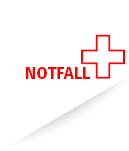Research group

Staff
Dr. Marcus Oswald
(post-doctoral researcher)
Topic:Specialist for propensity score matching, modelling and solving Mixed-Integer-Programs which arise in bioinformatic problems of the group, especially on networks and machine learning, statistics.
Research project: Developing individual treatment rules for antibiotics therapy for patients hospitalised with moderate community-acquired pneumonia (CAP)
The role of macrolides, β-lactams and fluoroquinolones in CAP is controversially discussed. We aim to find patient characteristics such that patients can be identified benefitting from a specific antibiotic therapy to implement this later into the clinical routine. We apply machine learning/artificial intelligence concepts to data available on admission of hospitalised patients from the observational, prospective, multinational CAPNETZ study to investigate patient variables of all relevant aspects for CAP treatment and management based on appr. 12,000 patients.
Alicia Hiemisch M.Sc.
(doctoral candidate)
Topic: Identifying host factors as drug targets for SARS-CoV-2 from genome-scale knockout and knockdown screens
Research project: SARS-CoV-2 caused a global pandemic in 2020. Patients with COVID-19 can worsen in a short time-lapse and die of multiple organ failure. Influenza causes millions of deaths every year. Instead of focusing solely on antiviral drugs, a promising approach is to repurpose clinically approved drugs that target human proteins. The objective of this project is to utilize omics data from genome-wide knockdown and knockout screens, transcription and proteomics profiles of such virus infected cells, and other relevant data to identify host dependency factors essential for virus entry, replication, and spread within the cell.
Mohadese Naseri M.Sc.
(doctoral candidate)
Topic: Identifying host dependency factors of Influenza A Viruses and SARS-CoV-2 using machine learning.
Research project: The viral life cycle relies on specific host proteins known as Host Dependency Factors (HDF), which can potentially be targeted for therapeutic purposes. Previous screening efforts have generated extensive lists of potential HDF, but there is limited agreement among these lists. The objective of this project is to develop a machine learning pipeline that ensures consistency in experimental data analysis for a more accurate identification of HDF.
Merve Kutay M.Sc.
(doctoral candidate)
Topic: Compare signaling pathways of SARS CoV-2 infected and non-infected cells using the phenotypic data of cells from knockdown screens
Research project: For SARS-CoV-2, which has been one of the largest challenges in recent years, it is crucial to identify the host dependency factors required for virus entry into the cell, replication and spread. Different data types and different approaches are used for this purpose. In this context, we aim to identify significantly changed signalling interactions between proteins in cell networks with the help of phenotypic information using imaging data from collaboration partners from Heidelberg and Frankfurt Universities. This work is based on machine learning-based comparing the phenotypes of infected and uninfected host cells.
Fionn Daire Keogh B.Sc.
(Master Student)
Topic: Identification of transcription factors from RNAseq data as potential targets for therapeutic intervention of Respiratory Syncytial Virus infection
Research project: RSV (Respiratory Syncytial Virus) poses a significant threat to vulnerable populations such as infants, the elderly, and immunocompromised individuals, often resulting in mortality. Currently, supportive care remains the primary therapeutic approach, as no safe and effective RSV vaccine is available. The primary objective of this project is to identify transcription factors that can effectively regulate host-factors associated with RSV infection. By targeting these specific transcription factors, we aim to initiate a cascade of events that will ultimately reprogram the expression of host-factors crucial for RSV replication and propagation. This endeavor will serve as a starting point for further investigations towards the development of novel drugs capable of combating RSV infection in a safe and effective manner.
Eric Brzoska B.Sc.
(Scientific Assistant)
System administration


